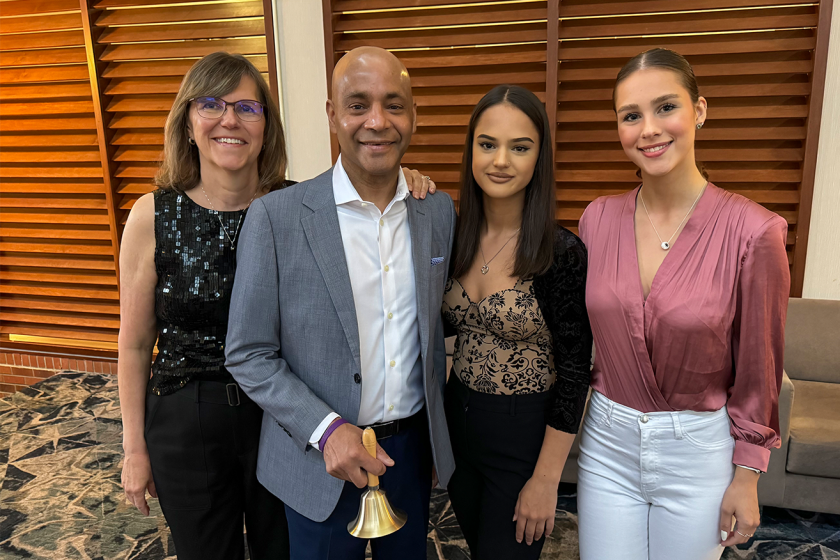Remembering Rangers’ Last Stanley Cup
It was so long ago that the year has become the name: Nineteen Forty. Who knows the names of the players now? They’re in the archives and engraved on the Stanley Cup.
There it is, Art Coulter, captain, New York Rangers.
It was so long ago that real Ranger fans wore tuxedoes, and players wore jackets and ties to Madison Square Garden, and the fans were polite to each other.
Of course, that was a Madison Square Garden ago and a lifetime ago. “We were the best team of the era, head and shoulders above the rest,” Coulter recalled from his home in Birmingham, Ala. “It was impossible to think they wouldn’t win it again. It was impossible for me to conceive that.
“Somebody wins every year. Regardless of what the Rangers were doing, you’d think they’d have won since then if just by chance.”
Well, the team Coulter captained, the team he believed was the best in the league, won the Stanley Cup one time. And there’s a story that may explain the whole whirlpool that caught the Rangers and held them so long.
First, there was thrift. Coulter quotes Lester Patrick, the general manager and former coach, talking to Frank Boucher, the coach and former star: “Frankie, if you had $75,000 to spend on payroll, how would you do it?”
That, Coulter said, was the whole payroll. Coulter’s top salary was $9,000, “and I was a superstar,” he said -- four seasons as captain and three times selected a second-team all-star defenseman. Players called him Trapper because he told stories about the outdoors and because it was the right name for a defenseman.
And then there was the circus, which was another evidence of thrift. Coulter says he still can recall the smell of the elephants. The circus played on dirt and the best rental of the building was during Easter vacation -- so the ice had to go.
“And if we were in the playoffs, we had to get out,” Coulter said. “If we got to the finals, none of the games were at home.” In 1940, that meant all the games of the finals were in Toronto.
There was another concept Lester Patrick had in addition to thrift. “It sounds silly to say he was not much of a coach,” Coulter said. “He had funny ideas about conditioning.”
It was a six-team league then and hard as the ice itself for 48 games and two series of playoffs -- semifinals and finals. After the 48-game season, general manager Patrick thought his players weren’t in shape. So he directed Boucher to take them to Atlantic City, N.J., as he had done with his own teams for a week to work them into shape for the playoffs -- sometimes with two-a-day workouts. “We left three Cups in Atlantic City,” Coulter said. “We were so tired instead of going for a beer, we went back to the hotel and to bed.”
They beat Boston, 4 games to 2, and when they got to Toronto, they were running out of gas. This was a team of all-stars and Hall of Fame players: Coulter, Lynn Patrick, Bryan Hextall, Neil Colville.
Coulter says he doesn’t watch hockey anymore; they don’t get much of it on television in Alabama and he wouldn’t watch today’s game if he could. “All these idiots slashing with sticks,” he said. “They look like loonies. We’d have a fight or two, but not this kind of stuff; hit somebody with a stick and you were in exile.
“They don’t have any defense today; they’re all forwards. What little I’ve seen on the news -- body-checking used to be beautiful -- now they ram somebody from behind into the boards, it’s disgraceful and they call it a body check. The game was totally different; people went to watch the Cooks and Boucher pass the puck and play around with it. The style and skill was beautiful.”
The slap shot was disdained. “Disgraced,” Coulter said. “It destroyed a man’s efficiency, stickhandling disappeared with the curved stick. If you slapped it, it was like giving away the puck.” Alex Shibicky, one of the line bosses, would limit himself to two slap shots a night.
Phil Watson was Fiery Phil on that team. “We’d be playing flat and the best thing to do was have a little -- not a brawl -- fracas,” Coulter said. “I could engineer a fake situation, the whistle would blow -- whoo-hoo -- and when we woke up, we were gone.”
Anyhow, they were in Toronto and tired. “We got to talking and I expressed my view that the training was all wrong,” Coulter said. “And I laid out a strategy, considering we might be over the hill or overtired.”
And before the sixth game -- win the Cup or face a seventh game in Toronto -- Lester Patrick, the grand strategist, repeated to the team what Coulter had told coach Boucher. “It came from the idea I had about playing shorthanded; anything would fe better than what we were doing,” Coulter said.
“We’d go into their end; I’d be the last man. To make it work, we all had to be in there to put the thrust and the pressure on them. But there had to be a last man. Me.
“Frankie said, ‘We can do it, but for God’s sake, Trapper, don’t get caught.’ We wanted to get them boxed up, get the crowd on them and let them do stupid things. We were tired and they were tired. We just had one thing going; it was like one for all and all for one.”
As tired and overtired as the Rangers were, they went to overtime, rushing in Coulter’s plan, and Hextall’s goal won it, 3-2.
For what would be the high point for more than half a century, there was a little party at the Royal York Hotel in Toronto. “Coming back to New York was like nothing,” Coulter said. “Not that it rated a parade, but the Rangers were big enough to jam the Garden. But it wasn’t like baseball or Lindbergh coming home.”
Coulter said he never heard a thank you for his plan, either, which he says didn’t bother him. How was anybody to know there wouldn’t be another bit of decisive strategy for God only knows.
Then came World War II. “That Ranger team was a class act,” Coulter said. “We had a rhythm with the Cooks, Boucher, Shibicky, and the two Colvilles were phenomenal. Then came the war and the Rangers were never worth a damn after it.”
And now it’s been a half-century and two years more. It’s tradition and who knows how long it will endure.
Go beyond the scoreboard
Get the latest on L.A.'s teams in the daily Sports Report newsletter.
You may occasionally receive promotional content from the Los Angeles Times.



